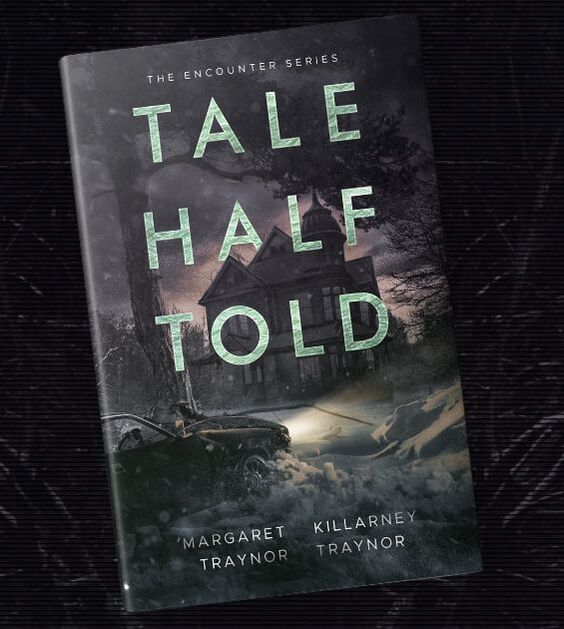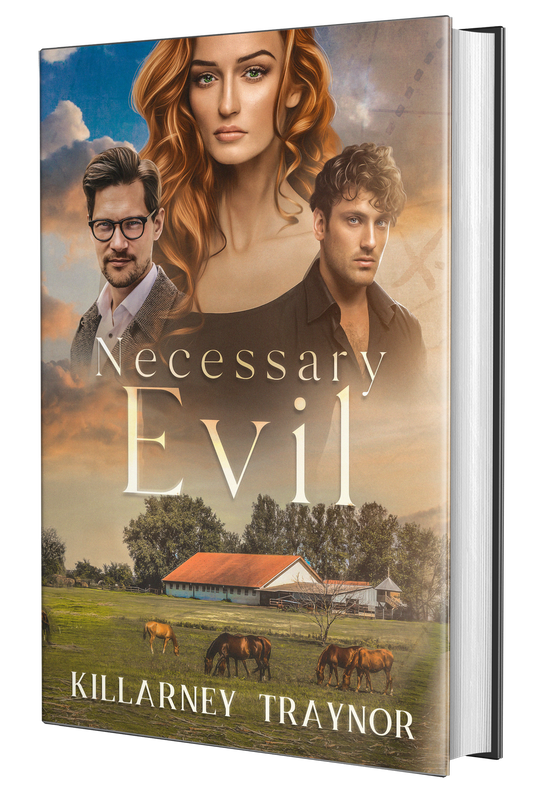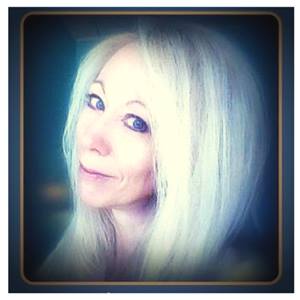 Over the course of the past few weeks, I got a chance to interview Jenna Brooks, a talented author, awesome editor, fierce Mother’s Rights activist, and former homeschooling mother of two. "Unconventional" is a word that particularly suits Jenna: she couldn’t resist turning the interview on me a few times! Jenna’s the author of award-winning October Snow, its sequel An Early Frost, and a new set of handbooks for survivors of domestic violence. Here, she discusses her new projects, her thoughts on evil and truth in the world today, and how her faith influences her writings. KT: The obligatory first question: what started you writing? JB: Dude. Really? I'm not one for self-introspection. It can turn paralyzing (not to mention, boring) real fast. Best I can tell you is, it's a compulsion. Always has been. C'mon. Go philosophical on me. Or maybe issues - let's give the reader something to talk about. KT: Okay, challenge accepted: Here are two questions: Your books, October Snow and An Early Frost center on strong female characters and their friendship with each other, something that can seem a rarity in books and movies these days. How do you feel women are generally represented in books and movies today? And how do you hope your books and characters speak to women today? JB: I don't believe that women are represented authentically at all in books and movies (or in any form of media, for that matter). Not these days, anyway. Generally speaking, I think the vapid, oversexed, emotionally over-dependent females that we too often see in art and in media are no more than the fantasies of a culture that has turned wholly contemptuous towards women, and we aren't portrayed realistically. It's an insidious kind of propaganda, designed to keep women silent - because the most powerful force of good known to mankind is a woman who knows her worth, and who has no problem with making her opinions known. As for the second question: I hope I help women to remember their dignity. To find their voices. While this culture debates to death every evil (or what is perceived as evil) out there, we aren't talking about the main reason that this culture is circling the drain: Women have been silenced, and the primary weapon used against us is shame. It's now arrived at the point where the very things that shamed us into silence - porn, faux-feminism, abortion, all resulting in the "Jezebel" theology of far too many churches - have been fully mainstreamed into our society. They're accepted as being normal. And when you consider these facts: 1. Very few women were in positions of institutional, media, or judicial/legislative power when these aberrations were promoted and incorporated - for our own good, they told us - and 2. That women are now blamed for the results... Well, you have to wonder if the greatest scam of all time has been played against women. KT: Dignity is a great word that you don't hear all that often. I notice that you use it a lot in After Awareness, your guide to helping battered women, which is based in part on your 10+ year experience helping domestic violence victims. What do you find is a major stumbling block to those who've lost their sense of dignity? JB: I'll answer, but you go first. What do you think is a stumbling block to women's dignity? Or, do you not regard it as an issue? 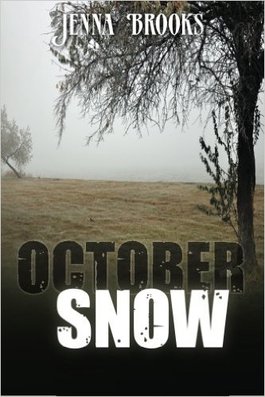 KT: Wait, who is giving the interview here? All right: the concept of dignity is suffering across both genders and I think a lot of it has to do with knowing who you are. Dignity means self-respect, a sense of pride in oneself, something that, by definition, takes time and effort to build. But how can your respect what you don't know or cannot define? We're largely choosing not to raise our children in religion, our families are scattered, and our national identity is being shattered. Even the concept of gender is becoming a fluid idea. If you don't know that you're a child of God, or your family, or if being patriotic is good, or whether or not you're even male or female, how can you know yourself enough to respect yourself? Truth is being redefined to mean "what is true for me or you at this particular moment". We learn largely through trial and error - but if there is no error, no truth that we cannot reason or talk our way around, no good, no bad, no wrong, no right, and everything can change on a dime... How can you build anything, including self-respect, on shifting sand? So, that is my two-cents and I turn the camera back to you: What do you find is a major stumbling block to those who've lost their sense of dignity? And how can they overcome it? JB: Real quick, on your comments about truth: The truth is not a wide road, and it's not a free-flowing, individualistic narrative that's defined by one's personal experiences. It's a pinpoint of stark reality, never changing, created by God and no one else. And we either accept it or we reject it - and I believe that creating alternate realities is a factor in the emotional instability we see all around us. I mean, I disagree with that famous quote about the definition of insanity - that it's doing the same thing over and over while expecting a different result. If that were accurate, then no one is sane. I think insanity is indicated by the level of outrage a person experiences when the results are always the same. And we can tell the truth about how we feel, but when we term our feelings as the ultimate "truth" - and worse yet, deem them to be divinely inspired - we're tap-dancing all around the unpardonable sin. Just my opinion. Okay, the biggest stumbling blocks to dignity: For males, I say it's fear of being a hypocrite - which, when you boil it down, is actually a form of cowardice. This culture has gone off the rails; yet instead of doing the required one-eighty and setting the example for our children, they tend to hide inside their shame. The only way to overcome that is through three little words: "I was wrong." And then make it right. For women...? Okay, here's another question for you (and again, generally speaking): How do you think people react to a woman who thinks highly of herself? Who sets immovable standards for how she will be treated? KT: People who act with dignity and self-respect tend to inspire a like response in others. Those who are easily threatened (bullies, the childish, etc) will probably react poorly, as they would when confronted with other good things in life. As to your second question, in a free society (absent of slavery or serfdom) the dignified woman (or man) sets the standard for themselves. However, dignity is not determined by the treatment of others: it is both inherent and assumed by the individual. Since we're both Christian, I can comfortably say that God values us and it is from Him alone that we receive our worth. Being treated badly by others does not change our worth (because it has not that power) and need not change our self-respect: some examples of dignity maintained under fire would be Rosa Parks, Mother Theresa, Booker T. Washington, and Maximilian Kolbe. What bad treatment can do is blind us to our sense of worth - which is, indeed, a terrible, terrible crime. Okay, back at you. Your books deal heavily with recovering a sense of self after abuse, both verbal and physical. What is a practical way a friend can help a recovering victim towards recovering her (or his) true sense of worth and self-respect? Or is this something that the victim can only do alone? 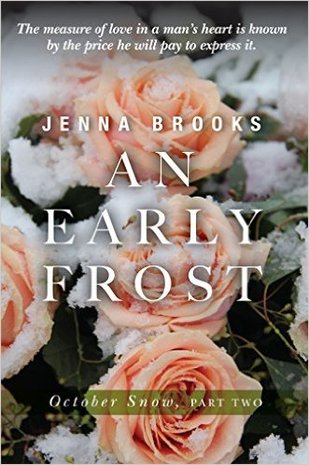 JB: I dunno, Traynor... I feel like you sidestepped (but only slightly) the issue of the response to women who display their dignity. But I'll let that go. (Yeah. That's bait.) Last question first: Some women are fully able to recover on their own, but with no thanks to a culture and a court system that I believe is, at best, lukewarm about actually advocating for abused women. In too many cases, our institutions are actually allies of the criminal. I suppose that's a whole other topic, though. As for the first question: I have to take brief issue with the way you phrased it, because I don't agree with the notion that violence against men is even in the same universe as violence against women; if nothing else, the results are vastly different, as are the options for escape and subsequent rehabilitation. The determination to equalize the genders in all things is, on its face, a troubling cultural trend - and when it comes to DV, the results can be deadly. That said, helping a battered woman can be a minefield. The first thing that caring people can do, and should do, is to get educated. Most people are badly misinformed about what's really going on out there, and there's plenty of research that blows a hole through the conventional ideas about DV and its targets. And definitely, everyone needs to get up-to-speed on the truth about the Family Court industry, especially if they still believe that the courts favor mothers. They don't, and abused mothers and children are often further traumatized by the system's acceptance of (alliance with?) the Father's Rights movement. (Anyone who wants to learn more can start here.) After becoming fully educated - and having avoided the Father's Rights propaganda while doing so - there's a process to helping a target survive and then get back on her feet. I wrote that handbook that explains what to do and what not to do, but the best advice I can offer is this: Never lose sight of the fact that women who are terrorized have experienced trauma. Sounds obvious, right? Yet if we're honest, doesn't our society pin some of the responsibility for an abuser's felonies directly on the woman he battered? And after she escapes, if indeed she does survive him, doesn't our society treat her like she should be able to simply start her life over again - no problem? Finally, do what you can to change the culture, because the roots of DV are now firmly planted within our lives. Again, I have suggestions for that in After Awareness. KT: Yes, I agree that we tend to just want the victim to 'just move on'. I suppose this could be seen as a reflection of our collective guilt as a society. After all, most DV abuse happens right under our noses, to people that we see on the playgrounds, at stores, in parties, schools, churches, and book clubs, and yet often we're caught unawares. So, we have your handbooks to learn more. Is there a place for DV victims and their friends to go to discuss the often overwhelming task of rebuilding a life and self? JB: Not usually - not for what happens after a DV situation. That's why I wrote the books. Are we going to talk about literature soon? KT: Of course we are! Which authors or books have most heavily influenced you? JB: My writing isn't influenced by other books, but my life is directed by The Bible, and I read non-fiction from authors such as Dan Allender and Charles Stanley. I keep Viktor Frankl's Man's Search for Meaning on my desk. That said, I'm inspired by my interactions with people - and when I come away angry enough, I write. 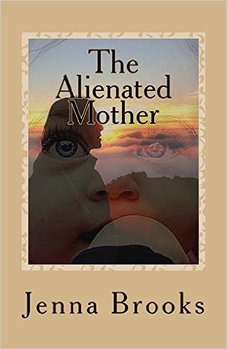 KT: You need to explain that last comment. JB: I think my anger is my most productive resource for my work. It motivates me. And I often wonder why so many people have turned tepid toward the evil in the world - how it is that they can look directly at the destruction of another soul and say nothing, do nothing. Or worse, find a way to blame the one who is being oppressed. Every time I think I'd like to go do something else, I'm reminded of a couple of people who were very close to me, whose lives was taken apart by violence. Not so much by the actual abuser, but by the ignorance and subsequent apathy of those around them. And I decide to stay in the fight. I think I got off topic. Sorry. KT: No worries! People have compared your books to Stephen King, though yours do not feature the supernatural. How do you feel about that comparison? Do you think it's apt? JB: Stephen King? I don't recall that one. I've heard Gillian Flynn and Liane Moriarty, because my novels - especially October Snow - mess with the reader's head. I got a couple of comments referencing Hitchcock (not sure why that would be, though), but I haven't heard a comparison to King. Speaking of Hitchcock, I so would put your books up there with his movies, but we'd have to also include comparisons to the great classic romances of that era. Like Necessary Evil - who would you cast as Greg and Maddie? Same for Summer Shadows: who would play Robert and Julia? KT: Hey, I'm supposed to be interviewing you, not the other way around! Seriously, I don't mind telling you who I'd cast in my books (though once you found out who inspired Gregory Randall, you'd throw something at me), but you're the subject, so I'm turning the question back on you: if you could cast whomever you'd like to play Josie, Samantha, and Maxine, who would play them? JB: No idea. No, actually, I think Chelsea Noble would be perfect as Jo. The others... I haven't thought about that in a long time. (And readers: Killarney told me privately which famous Hollywood actor inspired the character of Greg Randall. I LOVE it.) KT: What future projects can the readers expect from you? JB: I have three novels that I hope to launch in the next two years. Meltdown is Book Three of the October Snow series. It's a straight-up murder mystery, where Jack Seever turns up dead and the main suspects are the survivors from the first two books. I'm having a ball with this one. I never wrote a murder mystery before. Ventriloquist is a bit of a mindbender. Actually, it's a huge mindbender, deals with stalking - and what happens when the tables are turned. None So Free will come out in 2017. It's a tearjerker, and it may be my favorite project ever. By the way, I'll offer the handbooks After Awareness and The Alienated Mother for free on the day you post this interview, so let me know when. Know what? I'll price my novels at 50% off, too. I'll make an event out of it. Thanks for the chat. It was a lot of fun. KT: You can find Jenna's website at Jenna Brooks Online, and follow her on Twitter at @shesjennab.
0 Comments
Your comment will be posted after it is approved.
Leave a Reply. |
The BlogWelcome to Categories
All
|
Copyright © Killarney Traynor
All Rights Reserved.
No part of this website may be reproduced without
the Owner's express consent. [Backlinks allowed.]
All Rights Reserved.
No part of this website may be reproduced without
the Owner's express consent. [Backlinks allowed.]

